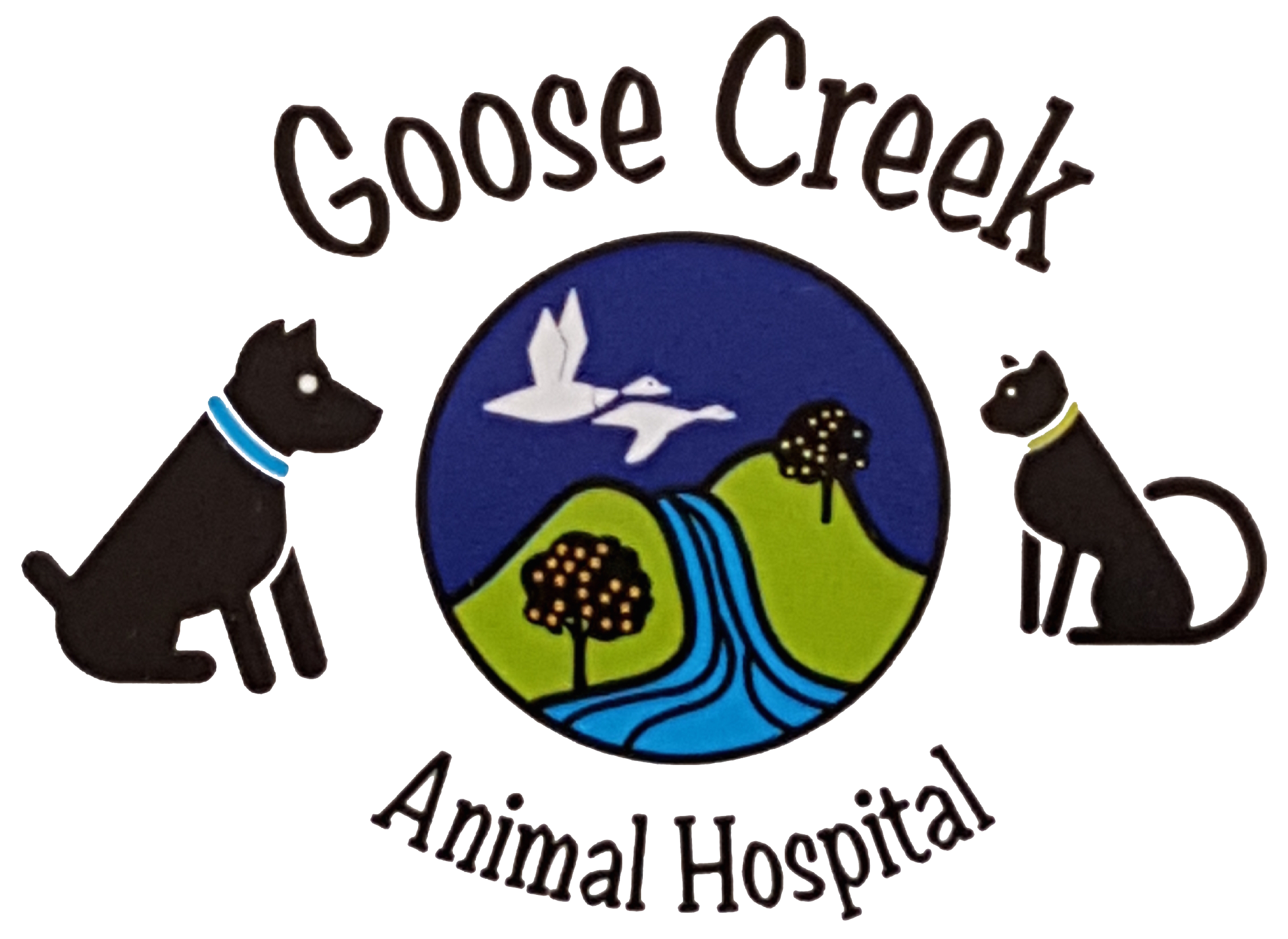
Goose Creek Animal Hospital is proud to offer the latest in pain management the K-laser therapeutic laser. The laser is a great alternative to pain medications and NSAIDS. For pets already on these medications long term, the K-laser can potentially be the only treatment necessary for certain conditions. Any pets suffering from arthritis, joint pain, edema and congestion, hot spots, ear infections, ligament sprains, post-surgical pain and infected or chronic wounds, can benefit from the K-Laser therapy.
Healing their pain… changing their lives.
Laser Therapy, or “photobiomodulation”, is the use of specific wavelengths of light (red and near-infrared) to create therapeutic effects. These effects include improved healing time, pain reduction, increased circulation and decreased swelling. Laser Therapy has been widely utilized in Europe by physical therapists, nurses and doctors as far back as the 1970’s. Now, after FDA clearance in 2002, Laser Therapy is being used extensively in the United States.
Has effectiveness been demonstrated scientifically?
Yes. There are thousands of published studies demonstrating the clinical effectiveness of Laser Therapy. Among these, there are more than one hundred rigorously controlled, scientific studies that document the effectiveness if Laser Therapy for many clinical conditions.
Cellular Effects of Laser Therapy
During Laser Therapy the infrared laser light interacts with tissues at the cellular level, and metabolic activity increases within the cell, improving the transport of nutrients across the cell membrane. This initiates the increased production of cellular energy (ATP) that leads to a cascade of beneficial effects, increasing cellular function and health.
Laser Therapeutic Effects
During each painless treatment, laser energy increases circulation, drawing water, oxygen, and nutrients to the damaged area. This creates an optimal healing environment that reduces inflammation, swelling, muscle spasms, stiffness, and pain. As the injured area returns to normal, function is restored and pain is relieved.
What to Expect
There is no patient sedation or restraint required and the experience is usually pleasant and comforting to them.
Most pets do not need to have their hair clipped.
Although improvement is often seen after the first visit, most patients require several treatments [3 to 8] for greatest benefit. For most conditions, we recommend a multi-visit treatment plan. Treatments vary in length, but most sites require 2 to 8 minutes. A majority of patients exhibit greater comfort and mobility within 12 to 24 hours after a laser treatment.
Class IV Laser Therapy treatments are cumulative in nature. The length and frequency of treatments varies with your pet’s condition. A sample treatment schedule is as follows:
- Every other day for one week [3 total]
- Twice the second week [2 total]
- Once the third week [1 total]
- Boosters as needed
Your veterinarian will recommend a treatment plan specific to your pet’s condition.
Numerous studies show that Laser Therapy can help with:
- Osteoarthritis
- Joint Pain
- Tendinopathies
- Edema and Congestion
- Ligament Sprains
- Muscle Strains
- Puncture Wounds
- Post-Traumatic Injury
- Post-Surgical Pain
- Neck and Back Pain
- Hip Dysplasia
- Burns
- Chronic Wounds
- Rehabilitation
- Post-Orthopedic Surgical Recovery
Reintroduction to Activity
Laser Therapy can relieve pain, reduce swelling and increase range of motion.
Often the patient will exhibit renewed energy and freedom of movement. Consult your veterinarian before your pet returns to full activity. A gradual introduction of activity may be suggested to insure the patient does not aggravate the condition.
Frequently Asked Questions
Does it hurt? What does a treatment feel like? There is little or no sensation during treatment. Occasionally the patient feels mild, soothing warmth, or tingling. Areas of pain or inflammation may be sensitive briefly before pain reduction.
Are there any side effects or associated risks? During more than twenty years of use by healthcare providers all over the world, very few side effects have ever been reported. Occasionally some old injuries or pain syndromes may feel aggravated for a few days, as the healing response is more active after treatment.
How long does each treatment take? The typical treatment time is 3 to 8 minutes depending on the size of the area being treated.
How often should a patient be treated? Acute conditions may be treated daily, particularly if they are accompanied by significant pain. More chronic problems respond better when treatments are received 2 to 3 times a week, tapering to once every week or two as improvement is seen.
How many treatments does it take? This depends on the nature of the condition being treated. For some acute conditions 1-2 treatments may be sufficient. Those of a more chronic nature may require 5 to 8 (or more) treatments. Some conditions may require ongoing periodic care to control pain.
How long before the results are felt? Your pet may feel improvement in their condition (usually pain reduction) after the first treatment. Sometimes they will not feel improvement for a number of treatments. This does not mean that nothing is happening. Each treatment is cumulative and results are often felt after 3 or 4 sessions.
Can it be used in conjunction with other forms of treatment? Yes! Laser Therapy is often used with other forms of therapy, including physical therapy, chiropractic adjustments, massage, soft tissue mobilization, electrotherapy and following surgery. Other healing modalities are complementary and can be used with laser to increase the effectiveness of the treatment.
Laser therapy was born from scientific research over 30 years ago in Europe and perfected by K-LaserUSA with the latest technological advancements.
